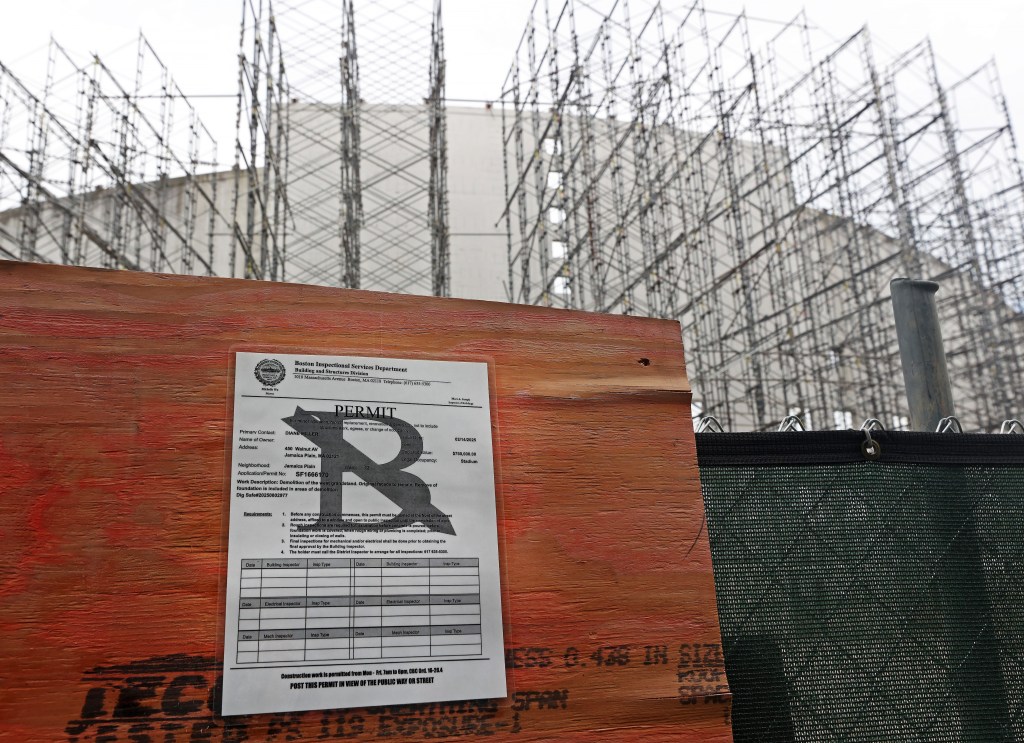Would you sign a lease without knowing the rent? That’s essentially what Mayor Michelle Wu is asking, as she pushes back the price tag reveal for White Stadium from fall to the end of the year.
As in, after the mayoral election.
At the end of last year, the city’s half of the roughly $200 million project soared from $50 million to $91 million. Last month Wu said that the city would have a clearer sense of final taxpayer costs for its plan to rehab White Stadium this summer.
And now? Well, we’ll know by the end of the year.
“There’s always some level of cost escalation,” Wu said Tuesday on WBUR’s Morning Edition.
We know. We’ve already watched the cost nearly double. Having a better idea of the final figure this public-private project would cost taxpayers before they hit the polls in November would help in weighing the pros and cons of a second term for Wu.
Her primary opponent in the race for mayor, Josh Kraft, last month revealed an internal city document showing the cost to taxpayers was projected to climb as high as $172 million. Wu acknowledged the potential cost spike, but described it as a “worst-case scenario” at the time.
Bostonians know all about worst-case scenarios. Remember the Big Dig?
Voting for mayor is as much about what the city leader asks of its taxpaying residents as it is what he or she will do for them. Wu has taken the lead on making the city greener, promoting bike use and bike lanes, among other projects.
On Monday, her office announced it was directing $5 million in grant funding toward community organizations with the aim of narrowing a life expectancy gap in three low-income neighborhoods where residents die about 20 years sooner than in wealthier parts of Boston.
Four community-led coalitions will get the grants “to build wealth and economic security” in Dorchester, Roxbury and Mattapan, as part of a partnership between Mayor Michelle Wu, the Boston Public Health Commission, and the Atrius Health Equity Foundation, the mayor’s office said.
An excellent move, deserving of praise.
But if Wu is to maintain her claims of transparency, she’ll need to be upfront with the White Stadium costs. The mayor has cited rising costs for the delay.
“We are seeing cost escalation, just in terms of the cost of steel, for example,” Wu said, referring to federal tariff impacts. “There’s not a great way to say this is going to be the exact number, because we’re subject to public procurement laws and the bids that come in.”
We know that a $172 million bill for the city is possible, and that’s a heck of a lot more than $91 million. Not knowing a ballpark figure can only lead to speculation.
Wu isn’t the only person on the mayoral campaign trail, nor is she the only one holding back on numbers.
Wu has called for Kraft to release his tax returns.
He should.
“Candidates and elected officials should be honest and transparent about their finances and other conflicts of interest,” Wu said.
“Boston voters deserve a full and complete accounting of candidates’ financial pictures and all of their entanglements and conflicts,” Wu said in a video.
She’s right. And Boston voters also deserve to know how much they’ll have to pay for high-profile public-private projects.


